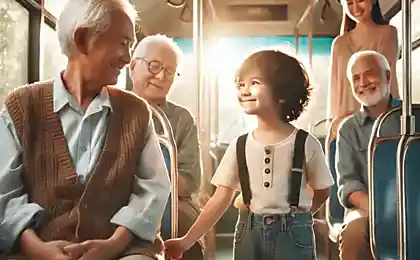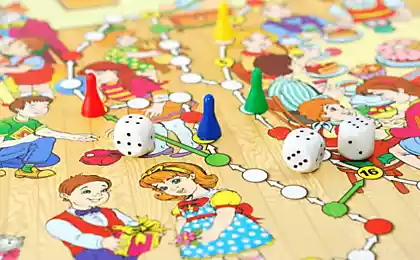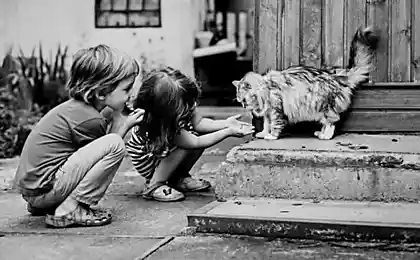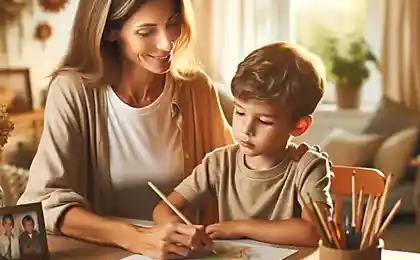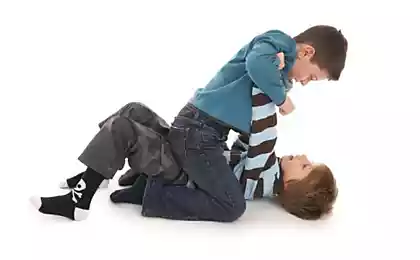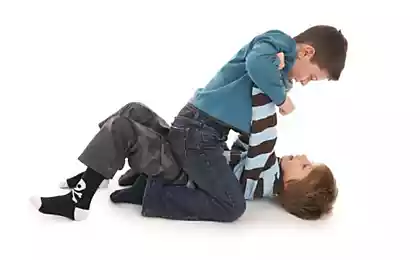479
To teach the child of politeness — it's not just about good manners
Teach your children to say "thank you" and "please" to you and wish you a pleasant day or ask about something politely — it's not just about good manners.
Believe it or not, but by using these words, children learn to think and overstep early egocentrism, characteristic of childhood, learning to recognize and respect the needs of others. This ability should be inherent already 6 years old.
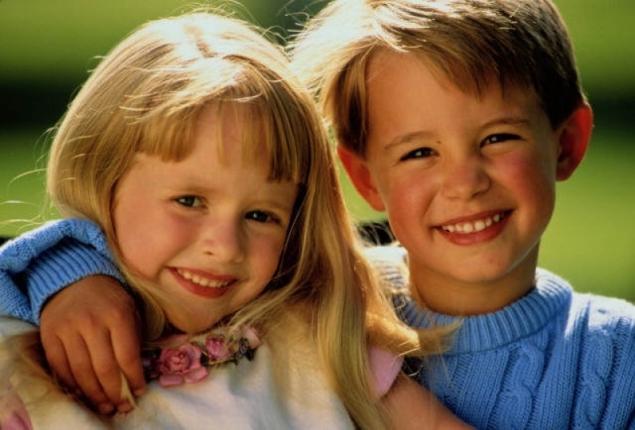
Moral development of children isOne of the most famous authors, zagovarivat about the importance of the development of morality in children, was Lawrence Kohlberg.
According to him, all children, including siblings, are very different, but each must learn to respect other people and their rights, as well as norms and rules of behavior in society.
Simple courtesy will help the child to successfully live in this world
When someone offers a four-year-old gift, very often parents say: "What do you say?", and the child, clearly reluctantly and almost in a whisper, said, "Thank you".
While the child does it naturally and with pleasure, gentle words will only help him in life.
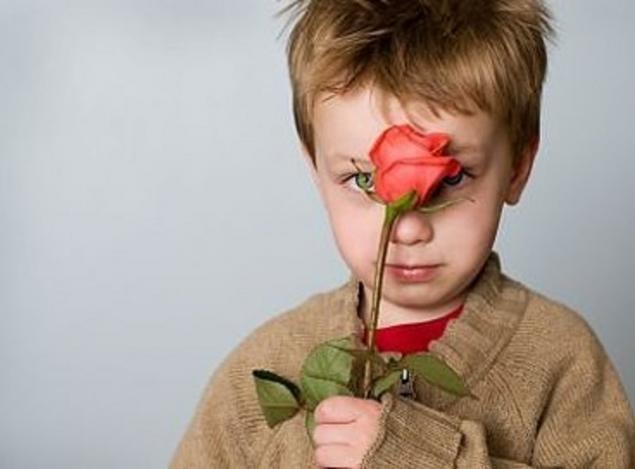
Because positive gestures give other people warmth and joy, simplifying a lot of seemingly complicated things.
Why is it important to raise children with respect? William Sears and John Bowlby came up with the concept of "respectful parenting."
Source: steptohealth.ru/pochemu-vazhno-nauchit-detej-govorit-spasibo-pozhalujsta-i-zdravstvujte/
Believe it or not, but by using these words, children learn to think and overstep early egocentrism, characteristic of childhood, learning to recognize and respect the needs of others. This ability should be inherent already 6 years old.

Moral development of children isOne of the most famous authors, zagovarivat about the importance of the development of morality in children, was Lawrence Kohlberg.
According to him, all children, including siblings, are very different, but each must learn to respect other people and their rights, as well as norms and rules of behavior in society.
- In early childhood ages 2 to 5 years the child is guided only by rewards and punishments. He understands that there are rules he must obey in order to earn the parents ' love and avoid abuse and punishment.
- In older, so-called "Golden", age 6 to 9 years the child gradually abandons his individualism and self-centeredness.
- In 8-10 years the child can already understand how important it is to respect others and how pleasant it is to receive respect in return. Usually at this age the child already tries to protect his friends, brothers and sisters, realizing that the world must be fair not only for him alone.
Simple courtesy will help the child to successfully live in this world
When someone offers a four-year-old gift, very often parents say: "What do you say?", and the child, clearly reluctantly and almost in a whisper, said, "Thank you".
- No matter how many times we repeat: the time will come and he will not thank people just automatically, and will understand what he says.
- This will help him a simple life observation: when he politely requests something from a classmate, who gives him the right thing with a smile. When he tells him "thank you", you can see how he happy.
While the child does it naturally and with pleasure, gentle words will only help him in life.

Because positive gestures give other people warmth and joy, simplifying a lot of seemingly complicated things.
Why is it important to raise children with respect? William Sears and John Bowlby came up with the concept of "respectful parenting."
- It involves the support of a natural adaptation of the child to their environment and the development of empathy in children, the emotional connection that will allow them better to understand the world, other people and themselves.
- Respectful parenting promotes healthy attachment between parents and children, physical affection, hugs, petting, positive words and good continuous communication.
- Good words help to maintain this relationship, and serve as its Foundation.
- Respectful parenting is based on the assertion that positive emotions are more powerful than negative. Our brain is always looking for such an incentive to survive and adapt.
Source: steptohealth.ru/pochemu-vazhno-nauchit-detej-govorit-spasibo-pozhalujsta-i-zdravstvujte/
Reading for the fall: 11 of the mandatory books list Harvard business school
Stress back pain: the theory of Dr. John Sarno
